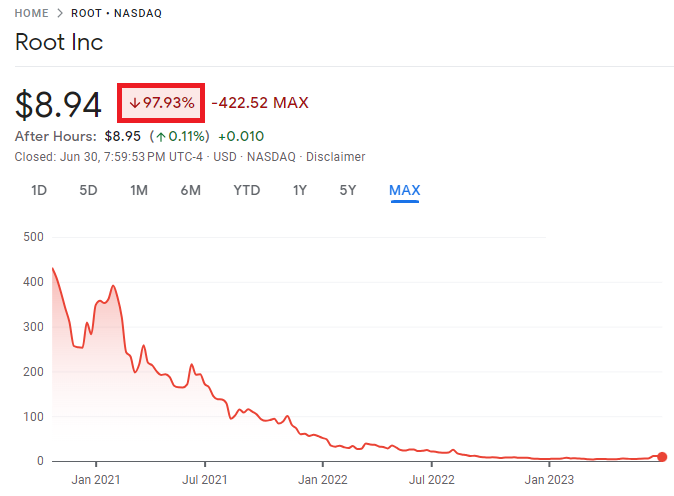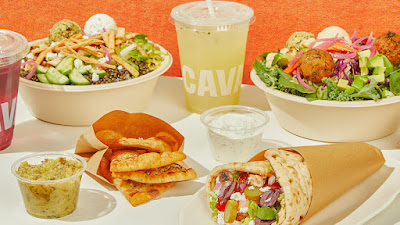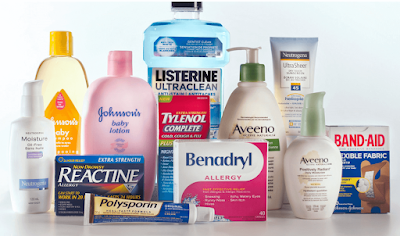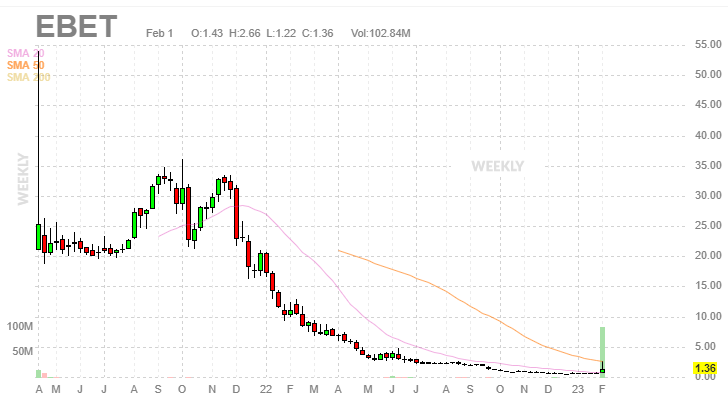ticker: CABA
Friday, December 15, 2023
Friday, December 1, 2023
DDC Enterprise (DDC) began trading on the NYSE on Fri 17 Nov 23
- Sector: Consumer Defensive
- Industry: Packaged Foods
- Full Time Employees: 104
- Incorporated in 2012
- Based in Sheung Wan, Hong Kong
- https://ir.daydaycook.com
Monday, November 27, 2023
Shein confidentially files for U.S. IPO
- Shein is headquartered in Singapore and was founded in Nanjing, China in 2008.
- In 2022, Shein was the world's largest fashion retailer with a value of $100 billion — more than fast-fashion predecessors H&M and Zara combined.
- Shein uses on-demand manufacturing to reduce inventory waste and deliver affordable products.
- It has been criticized for its labor practices and the role of fast fashion in pollution.
- Shein promotes clothes under $30, $20 or even $5, mostly made in China and shipped directly to shoppers.
- https://us.shein.com/?ref=www&rep=dir&ret=us
- Design theft: Artists have filed a racketeering lawsuit accusing Shein of stealing designs.
- Import tax laws: A congressional report says Shein abuses a loophole in import tax laws.
- Forced labor: Lawmakers have called for an investigation into alleged use of forced labor in Xinjiang.
A confidential filing is common, as it allows companies to communicate with the U.S. Securities and Exchange Commission and make any necessary adjustments to their filings in private. Over the next few months, Shein will likely make tweaks to its paperwork and answer numerous questions from the agency. The filing will be made public once the company is ready to move forward with its IPO. At that point, those communications with the SEC and any adjustments to its paperwork will be released as well.
Shein has been on a meteoric rise over the past few years after it won over consumers across the globe with its fashion-forward designs, endless assortment and dirt-cheap prices. But Shein has faced a series of challenges along the way and faced accusations of using forced labor in its supply chain, violating labor laws, harming the environment and stealing designs from independent artists.
The company is currently under investigation by the newly formed House Select Committee on the Chinese Communist Party and has faced scrutiny over its ties to Beijing. Numerous lawmakers, including 16 Republican attorneys general, have called on the SEC to ensure Shein isn’t using forced labor in its supply chain before it’s allowed to start trading in the U.S.
Friday, October 20, 2023
Chromocell Therapeutics Seeks $8.7 Million In Micro-IPO
- Chromocell Therapeutics, a Phase 1 biotech developing a non-addictive pain blocker using a sodium ion channel
- HQ North Brunswick, New Jersey
- https://chromocell.com/
Thursday, October 5, 2023
==Maison Solutions (MSS) began trading on the Nasdaq on Thur 5 Oct 23
- Headquarters: Monterey Park, CA
- Founded: 2019
- maisonsolutionsinc.com
Tuesday, September 19, 2023
Instacart (CART) began trading on the Nasdaq on Tue 19 Sept 23
Thursday, September 14, 2023
==DevvStream Holdings and Focus Impact Acquisition Corp (FIAC) enter SPAC business combination agreement
- DevvStream Holdings and Focus Impact Acquisition Corp. announced that they have entered into a definitive Business Combination Agreement for a business combination. DevvStream is a leading developer and manager of technology-based carbon credits and related sustainability solutions. DevvStream seeks to partner with governments and corporations worldwide to achieve their sustainability goals through the implementation of curated green technology projects that improve energy efficiencies, and eliminate and reduce or sequester carbon emissions, through the use of carbon credits. DevvStream also helps these organizations meet their net zero goals by providing them access to high-quality carbon credits.
- Focus Impact is a special purpose acquisition corporation focused on amplifying social impact through the pursuit of a merger or business combination with socially forward companies. The Transaction is structured as an amalgamation of DevvStream into a wholly owned subsidiary of Focus Impact, following Focus Impact's redomiciling as an Alberta company.
- Focus Impact will be renamed DevvStream Corp. and continue the business of DevvStream following the amalgamation.
- It is a condition of the Transaction that the securities of the Combined Company will be listed on the Nasdaq Stock Exchange, and the shares are expected to trade under the ticker symbol "DEVS".
- Pursuant to the Business Combination Agreement, Focus Impact will re-domicile in the Province of Alberta, Canada and a newly formed, wholly-owned subsidiary of Focus Impact will combine with DevvStream, such that, following the combination, DevvStream will continue as a wholly-owned subsidiary of Focus Impact, which will be renamed DevvStream Corp. The aggregate transaction consideration deliverable to the DevvStream stockholders shall be a number of newly issued shares of common stock (or shares of common stock issuable upon the exercise or conversion of other outstanding securities of DevvStream that are converted as a part of the transaction) of the Combined Company equal to US$145 million plus the aggregate exercise price of the outstanding DevvStream options and warrants, with each share of common stock of the Combined Company valued at US$10.20 per share for the purposes of the Transaction. Based on the aggregate transaction consideration, assuming full dilution and a U.S. dollar to Canadian dollar exchange rate of 1.34, this implies a deemed per share value of C$2.16 for DevvStream's subordinate voting shares.
- Focus Impact maintains a trust account in the amount of approximately US$60 million, as of June 30, 2023 (prior to any redemptions by its public shareholders). All proceeds to DevvStream from the proposed Transaction (after satisfaction of payments to redeeming Focus Impact shareholders and satisfaction of relevant fees, expenses and other liabilities) are expected to be used to by the Combined Company to execute its business plan and for general working capital purposes. The post-transaction enterprise value of DevvStream (prior to receipt of any proceeds from additional capital raising activity) implied by the transaction terms is US$212.8 million.
Wednesday, September 13, 2023
==Calidi Biotherapeutics (CLDI) began trading on the NYSE on Wed 13 Sep 23
- Calidi Biotherapeutics, a San Diego-based biotech company, has gone public through a special purpose acquisition company (SPAC). The company has secured nearly $70 million in funding to develop its allogeneic stem cell therapies through 2025. Calidi is merging with First Light Acquisition Group (FLAG).
==Birkenstock (BIRK) filed on Tuesday with the SEC for an IPO
Birkenstock's F-1 : " In fiscal 2022, we generated revenues of 1,242.8 million, gross profit margin of 60%, Adjusted gross profit margin of 62%, net profit of 187.1 million, Adjusted EBITDA of 434.6 million and Adjusted EBITDA margin of 35%, while selling approximately 30 million units... In the current era, we have built on our legacy while continuing to revolutionize processes and strategies to unleash our global potential, growing revenues at a 20% CAGR from fiscal 2014 to fiscal 2022."
- Key financials:
- Revenues increasing from 727.9 million in fiscal 2020 to 1,242.8 million in fiscal 2022, a 31% two-year CAGR;
- Number of units sold increasing at a 12% CAGR between fiscal 2020 and fiscal 2022;
- ASP increasing at a 16% CAGR between fiscal 2020 and fiscal 2022;
- DTC penetration increasing from 30% of revenues in fiscal 2020 to 38% of revenues in fiscal 2022;
- Gross profit margin expanding from 55% in fiscal 2020 to 60% in fiscal 2022;
- Adjusted EBITDA growing at a 49% two-year CAGR from 194.8 million in fiscal 2020 to 434.6 million in fiscal 2022, with Adjusted EBITDA margin expanding 8 percentage points from 27% in fiscal 2020 to 35% in fiscal 2022.
Friday, September 8, 2023
Smith Douglas Homes files for IPO
Friday, August 25, 2023
Klaviyo (NYSE) files S-1 for IPO; size and pricing not yet disclosed
Thursday, August 17, 2023
==VinFast Auto Ltd. (VFS) began trading on the Nasdaq on Thur 17 Aug 23
New York – Ha Noi, August 15, 2023 – VinFast Auto Ltd. (“VinFast” or the “Company”) celebrated its listing and commencement of trading of its shares on the Nasdaq Global Select Market under the ticker symbol “VFS,” with an equity value of over US$23 billion.
VinFast’s public listing follows the completion of the business combination with Black Spade Acquisition Co (“Black Spade”) on August 14, 2023. VinFast celebrated this moment by ringing the opening bell at Nasdaq Stock LLC (“Nasdaq”) earlier today and became the largest Vietnamese company listed on the U.S. stock market by market capitalization.
The combined company will now operate as VinFast Auto Ltd. and continue to be led by Global CEO Le Thi Thu Thuy, or Madame Thuy Le, who is supported by an experienced, diverse, and entrepreneurial senior management team. Black Spade will provide ongoing business advisory input for the growth of the brand and assist with direct investor engagement.
Commenting on this significant milestone, Madame Thuy Le, Global CEO of VinFast Auto Ltd., said: “VinFast has accelerated the global electric vehicle (EV) revolution by making smart, safe, and environmentally friendly EVs accessible to everyone. Today’s successful listing not only supports VinFast’s commitment to sustainable mobility at a global scale but also unlocks access to the capital markets and important avenues for future development. Further, it is our hope that VinFast’s listing will inspire and unleash greater opportunities for Vietnamese brands to participate in the global market.”
VinFast has delivered close to 19,000 EVs including the VF e34, VF 5, VF 8, and VF 9 models, as of June 30, 2023. It is also preparing for the upcoming launch of the VF 3, VF 6, and VF 7 models in the Vietnamese and global markets. VinFast looks forward to building upon its rapid expansion as the company rolls out next-generation EVs and solutions, and carries out its strategy of expanding its footprint globally.
The company has established a strong foothold in its Vietnamese home market by rolling out its own charging network spanning across 63 cities and provinces, and plans to expand it further in the coming years. VinFast has also established a company-owned retail and service network of over 122 VinFast stores worldwide.
Monday, August 7, 2023
IPOs this week : Aug 7 - 13, 2023 (wk 32)

- Hesai Group (NASDAQ:HSAI) on 8/8/2023. Price movement over the past six months: -41.16%.
- Lucy Scientific Discovery (NASDAQ:LSDI) on 8/8/2023. Price movement over the past six months: -62.88%.
- Nextracker (NASDAQ:NXT) on 8/8/2023. Price movement over the past six months: +34.21%.
- Enlight Renewable Energy (NASDAQ:ENLT) on 8/9/2023. Price movement over the past six months: +4%.
- Mineralys Therapeutics (NASDAQ:MLYS) on 8/9/2023. Price movement over the past six months: -27.87%.
Friday, June 30, 2023
Root Insurance (ROOT) : performance since 2020 IPO
Friday, June 9, 2023
Atlas Energy Solutions (AESI) began trading on the NYSE on Thur 9 Mar 23
- Sector(s): Energy
- Industry: Oil & Gas Equipment & Services
- Full Time Employees: 371
- Founded in 2017
- HQ in Austin, Texas
- https://atlas.energy
Thursday, June 8, 2023
Fast-casual Mediterranean restaurant chain Cava aims for $2.12 billion valuation in U.S. IPO
- Cava prices IPO at $17-$19 a share, with top end value of $2.1B; looks to raise as much as $274M in offering
Korean barbecue concept GEN Restaurant Group files for IPO
 GEN Restaurant Group Inc., which owns the 32-unit GEN Korean BBQ House concept, has filed for an initial public offering, joining a small list of brands seeking funds in the public markets this year.
GEN Restaurant Group Inc., which owns the 32-unit GEN Korean BBQ House concept, has filed for an initial public offering, joining a small list of brands seeking funds in the public markets this year.The Cerritos, Calif.-based casual-dining company, in Securities and Exchange Commission Form S-! registration documents filed May 26, did not yet set the number of shares, a share price or a timetable for the Korean barbecue concept.
In the 12 months ended March 31, the company said it had revenues of $169 million and average unit volumes of $6 million. As of May 26, it had restaurants in six states, including its home state of California as well as Arizona, Hawaii, Nevada, New York and Texas.
GEN Korean BBQ was founded in 2011 in Tustin, Calif., by Jae Chang and David Kim. Kim was the owner of Baja Fresh Mexican Grill and La Salsa Fresh Mexican Grill, which he sold to and bought back from The Wendy’s Co. over a four-year period. In 2016, Kim sold both brands to the MTY Food Group Inc., a Montreal-based restaurant operator, in a $27 million deal.
Because GEN Restaurant Group had less than $1.07 billion in revenue during its last fiscal year, it qualifies as an emerging growth company, or EGC, and has limited disclosure requirements, the company noted.
The GEN Korean BBQ House concept allows customers to cook their own food.
The company plans to list on the Nasdaq exchange under the symbol "GENK."
The sole book-running manager on the public offering is Roth Capital Partners with the Craig-Hallum Capital Group and The Benchmark Co. as co-managers.
Friday, June 2, 2023
Five Point Holdings (FPH) : 6-year performance
ticker: FPH
Qualys (QLYS) : 10-year performance
- Sector(s): Technology
- Industry: Software—Infrastructure
- Full Time Employees: 2,143
- Founded in 1999
- https://www.qualys.com
Friday, May 26, 2023
Tuesday, April 25, 2023
Johnson & Johnson's Kenvue files for IPO
- Kenvue CEO Thibaut Mongon said that the establishment of Kenvue is an important part of the spin -off restructuring plan, which can maximize the value of all stakeholders. In terms of positioning, KenVue competed with companies such as P & G and L'Oreal.
- Skin health/beauty sector revenue accounts for 30%, including 16 brands including Neutrogena, Ai Weinuo, Dr. Chengye, Oshuba, etc.; the revenue proportion of basic health sectors is 32%, including wound care, oral care, and oral care, and oral care, and oral care, and oral care, and oral care, and oral care. Baby care and women's health brands, including Li Shidelin, Chuangya Paste bandages and OB sanitary cotton bars, including 12 brands, including 38%of the revenue of personal care segments, including non -prescription medicines and health products, such as Tyno and Motalin and so on 16 brands.
- Co confirms that Kenvue Inc., a wholly owned subsidiary of Johnson & Johnson comprising its Consumer Health Business, has launched a roadshow for the initial public offering of 151,204,000 shares of its common stock.
- Kenvue expects to grant the underwriters a 30-day option to purchase up to an additional 22,680,600 shares of its common stock to cover over-allotments, if any.
- The IPO price is currently expected to be between $20.00 and $23.00 per share.
- Kenvue has applied to list its common stock on the New York Stock Exchange under the symbol "KVUE."
- After the completion of the IPO, JNJ will own 1,716,160,000 shares of Kenvue's common stock, representing 91.9% of the total outstanding shares of Kenvue's common stock (or 90.8% if the underwriters exercise in full their over-allotment option).
- Goldman Sachs (GS), J.P. Morgan (JPM) and BofA Securities (BAC) are acting as joint lead book-running managers for the IPO.
Thursday, April 20, 2023
U Power (UCAR) began trading on the Nasdaq on Thur 20 Apr 23
- HQ: Xuhui, Shanghai, China
- https://en.upower.com/
Wednesday, April 19, 2023
Intuitive Machines (LUNR) began trading on the Nasdaq on Tue 14 Feb 23
 Commercial lunar lander company Intuitive Machines has completed its merger with Inflection Point Acquisition Corp., a special purpose acquisition company (SPAC) on Feb. 13, raising far less money than originally anticipated.
Commercial lunar lander company Intuitive Machines has completed its merger with Inflection Point Acquisition Corp., a special purpose acquisition company (SPAC) on Feb. 13, raising far less money than originally anticipated.- Sector(s): Industrials
- Industry: Aerospace & Defense
- Founded in 2013
- HQ in Houston, Texas
- https://www.intuitivemachines.com





























